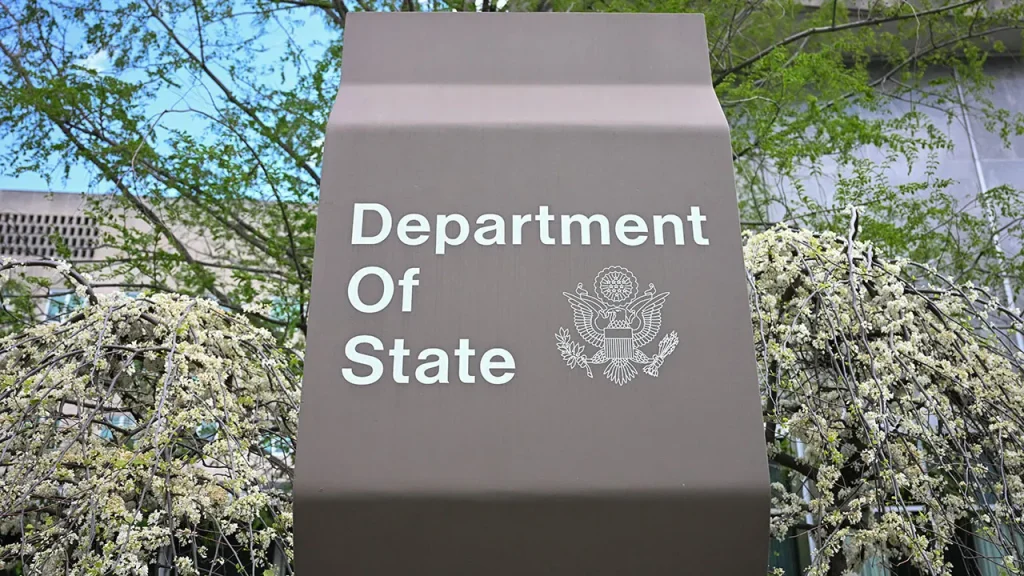The U.S. State Department is facing scrutiny over significant updates to its annual Human Rights Report, which critics claim signal a retreat from accountability. Changes include a reduction in detail regarding egregious human rights abuses, particularly those affecting marginalized communities. In response, department officials assert that these modifications aim to streamline the report for clarity while remaining committed to human rights advocacy worldwide.
| Article Subheadings |
|---|
| 1) Overview of State Department’s Human Rights Report Changes |
| 2) Criticism from Advocacy Groups and The Media |
| 3) Official Responses from the State Department |
| 4) Historical Context of the Human Rights Report |
| 5) Future Implications for Human Rights Advocacy |
Overview of State Department’s Human Rights Report Changes
The U.S. State Department’s recent modifications to its Human Rights Report have generated considerable media attention and concern from human rights advocates. As part of its restructuring effort, the department intends to streamline reporting to enhance readability and better align with statutory requirements. This year’s report is set to emphasize egregious human rights violations—such as torture, arbitrary detention, and unlawful killings—over what has been described as adjunct political claims that lacked substance. The debate is amplified by its timing, as the department aims to unveil the updated report amid ongoing international concerns regarding human rights conditions.
Criticism from Advocacy Groups and The Media
Advocacy organizations and numerous media outlets have reacted sharply to the revisions. Articles from prominent news sources have highlighted concerns that changes will diminish the report’s comprehensiveness and rigor. Critics, including leaders from organizations like Amnesty International and Human Rights Watch, argue that the omission of critical issues surrounding discrimination, particularly against LGBTQ+ individuals and marginalized communities, marks a regression in U.S. human rights dictates.
“What this is, is a signal that the United States is no longer going to pressure other countries to uphold those rights that guarantee civic and political freedoms,”
stated Paul O’Brien, Executive Director of Amnesty International USA, criticizing the shift away from subjects that ensure a broad understanding of human rights.
Official Responses from the State Department
In stark contrast to the critical assessments, officials from the State Department have defended the changes, arguing that restructuring efforts are essential for producing a more focused, thorough report. According to a senior State Department official, the modifications are meant to “remove report redundancy, increase readability, maintain consistency to U.S. statutes, and return focus to human rights issues rather than political bias.” Furthermore, the department contended that the new format will reinforce adherence to legislative mandates that form the backbone of the report and do not mark any shift in U.S. policy in advocating for human rights globally.
Historical Context of the Human Rights Report
The “Country Reports on Human Rights Practices” have served as a fundamental resource for U.S. foreign policy decisions since their inception, traditionally published annually during the spring months. These reports provide essential insights into human rights conditions in various nations, influencing Congress’s decisions regarding foreign aid and international relations. Historically, both Republican and Democratic administrations have utilized the reports as invaluable diplomatic tools to apply pressure on countries with poor human rights records. Former Secretary of State Mike Pompeo, for instance, previously spoke about a “proliferation of human rights” throughout the globe, emphasizing the importance of the reports in documenting and addressing human rights violations.
Future Implications for Human Rights Advocacy
As the State Department rolls out its revamped Human Rights Report, the implications for both domestic and international advocacy efforts remain a critical concern. Many activists fear that the decreased focus on specific rights may embolden repressive governments and diminish the global pressure to uphold human rights standards. Moreover, the perceived retreat from comprehensive reporting could undermine trust in the U.S. as a leader in human rights advocacy. With evolving domestic and global landscapes, the effectiveness of the Human Rights Report in influencing policy remains to be seen, but it raises vital questions regarding the U.S. commitment to championing human dignity worldwide.
| No. | Key Points |
|---|---|
| 1 | The State Department’s Human Rights Report is undergoing extensive changes aimed at streamlining content for better clarity. |
| 2 | Critics argue the changes downplay serious human rights abuses, especially concerning marginalized communities. |
| 3 | Officials defend the modifications as necessary to align with U.S. statutory requirements on human rights reporting. |
| 4 | Historically, the reports have served as a key diplomatic tool influencing U.S. foreign policy and international relations. |
| 5 | There are significant concerns regarding the future of U.S. human rights advocacy and its global implications. |
Summary
The recent changes to the U.S. State Department’s Human Rights Report have sparked an intense debate among officials and human rights advocates. While the department asserts its commitment to highlighting serious violations, critics worry that the modifications could undermine America’s role as a proactive defender of human rights globally. As the rollout of the report approaches, it remains crucial for stakeholders to monitor how these changes will impact the promotion of human rights and the integrity of U.S. foreign policy.
Frequently Asked Questions
Question: What prompted the changes to the Human Rights Report?
The changes were initiated by the State Department with the aim of streamlining the report for better clarity and alignment with statutory requirements related to human rights documentation.
Question: How do critics view the modifications?
Critics express concern that the changes will lessen the accountability for serious human rights violations, particularly affecting marginalized communities and groups.
Question: What historical significance do the Human Rights Reports hold?
The reports have served as an essential tool in shaping U.S. foreign policy, providing comprehensive insights into the human rights practices of various nations, and influencing funding and diplomatic relations.
